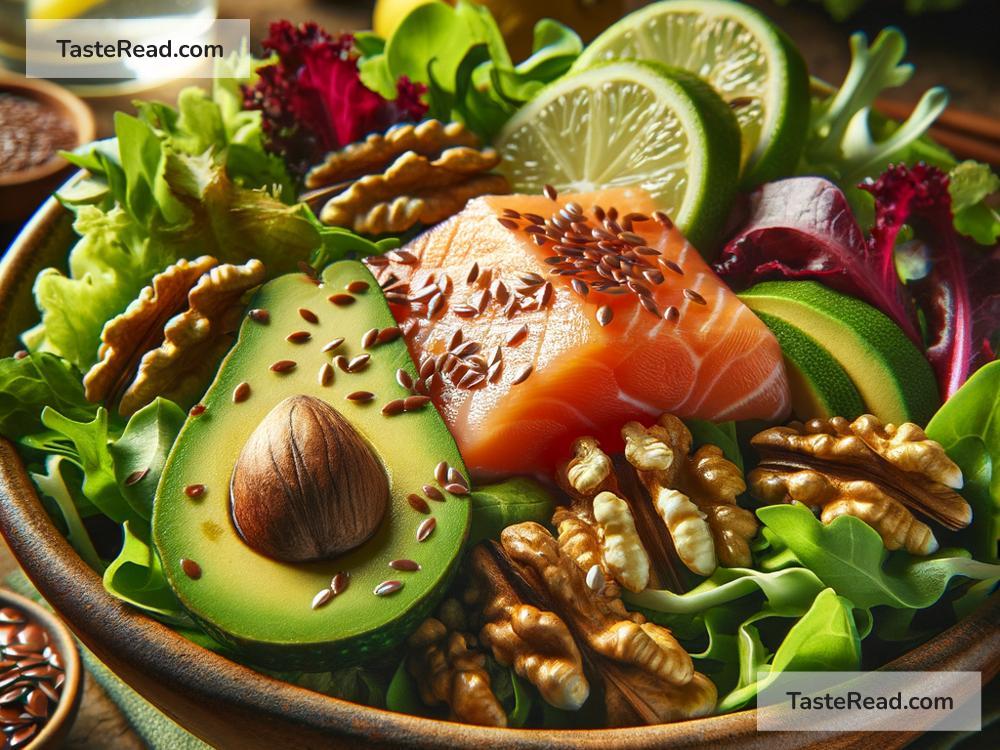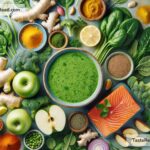The Best Foods to Help Reduce Arrhythmia in Your Life
Do you ever feel that your heart skips a beat or races unexpectedly? You might be experiencing a condition known as arrhythmia. Arrhythmia refers to irregular heartbeats, and while some cases are harmless, others can be serious and need medical attention. Alongside advice from your doctor, what you eat can make a big difference in improving your heart health and supporting a more stable heartbeat.
In this article, we’ll explore some easy-to-understand science behind arrhythmia and foods that can help reduce its risks.
What Is Arrhythmia? Why Does Diet Matter?
Arrhythmia occurs when the electrical signals that control your heartbeat are disrupted. This can lead to beats that are too fast, too slow, or irregular. A healthy heart relies on a balance of nutrients to send these electrical signals and pump blood effectively. Poor nutrition, such as eating too much processed food, salt, or sugar, can disrupt this balance and increase the risk of arrhythmia.
The good news is that you can protect your heart by eating certain foods that support proper function and reduce inflammation, stabilize blood pressure, and balance electrolytes like potassium and magnesium. These nutrients are key to building a strong foundation for heart health.
Heart-Friendly Foods for Reducing Arrhythmia
Here are some of the best foods to incorporate into your diet if you want to reduce arrhythmia and keep your heart healthy.
1. Leafy Greens (Spinach, Kale, Swiss Chard)
Leafy greens are packed with magnesium and potassium, two critical electrolytes that help regulate your heartbeat. Magnesium helps relax blood vessels, while potassium keeps heart rhythms steady by balancing fluids in your body.
These greens are also low in calories and high in fiber, making them great for overall health. Add spinach to your salads, sauté kale into soups, or enjoy Swiss chard as a side dish.
2. Fatty Fish (Salmon, Mackerel, Tuna)
Fatty fish is rich in omega-3 fatty acids. Omega-3s are healthy fats that reduce inflammation in your body, prevent cholesterol buildup, and support better heart rhythms. They are known to lower the risk of arrhythmia and improve overall cardiovascular health.
Try having fatty fish at least twice a week. You can bake, grill, or pan-sear salmon or tuna for a delicious, heart-friendly meal.
3. Nuts (Almonds, Walnuts)
Almonds and walnuts contain a mix of magnesium, healthy fats, and fiber that can benefit your heart. Magnesium supports a steady heartbeat, while healthy fats reduce bad cholesterol, keeping arteries clear.
However, remember to eat nuts in moderation. A small handful each day is enough for you to enjoy their benefits without adding too many extra calories.
4. Berries (Blueberries, Strawberries, Raspberries)
Berries are superfoods because they are packed with antioxidants that fight inflammation and protect your heart. Arrhythmia is often linked to inflammation, so reducing it can help stabilize your heartbeat.
Snack on fresh berries, add them to your oatmeal, or blend them into a smoothie for a heart-healthy treat full of flavor.
5. Bananas
Bananas are an excellent source of potassium, which helps your heart work properly. Potassium has been shown to lower blood pressure and improve the function of your heart’s electrical systems. Potassium works closely with magnesium to promote a healthier and more stable heartbeat.
Eat a banana as an easy snack, slice it into cereal, or mix it with yogurt for a naturally sweet option.
6. Whole Grains (Quinoa, Brown Rice, Oats)
Whole grains are full of fiber and nutrients that contribute to better heart health. They can help lower your cholesterol levels and ensure proper blood flow, which can reduce the risk of arrhythmia.
Choose whole grains like quinoa, brown rice, and oats instead of white rice or refined grains. Start your morning with a bowl of oatmeal topped with nuts and berries!
7. Avocados
Avocados are rich in both magnesium and potassium, making them a heart-healthy powerhouse food. They also contain healthy fats that improve cholesterol levels and help your heart’s electrical signals stay balanced.
Spread avocado on whole-grain toast or add it to salads for a creamy texture and a nutrient boost.
8. Dark Chocolate (In Moderation!)
Yes, you can eat chocolate! Dark chocolate (with a cocoa content of 70% or higher) has been shown to improve circulation and support better heart function. It also contains magnesium, which promotes normal heart rhythms.
Stick to small portions—one or two squares a day is enough to enjoy its benefits without unwanted extra sugar.
Foods to Avoid
While the foods above help protect your heart, some items should be limited or avoided because they can worsen arrhythmia symptoms. These include:
- Caffeine: Too much can overstimulate your heart.
- Alcohol: It disrupts heart rhythm and raises blood pressure.
- Processed Foods: High in harmful fats, salt, and preservatives.
- Sugary Snacks: Excess sugar leads to inflammation, putting stress on your heart.
Final Thoughts
If you’re dealing with arrhythmia, focusing on a heart-healthy diet can make a big difference. By eating nutrient-rich foods like leafy greens, fatty fish, nuts, berries, and avocados, you’re giving your heart the support it needs to function optimally. Pair these foods with regular exercise, stress management, and staying hydrated for the best results.
Remember, always consult your doctor before making big changes to your diet, especially if you’re taking medication for arrhythmia or other health conditions. A combination of good food choices, healthy habits, and medical advice can help you manage arrhythmia and keep your heart beating strong!


